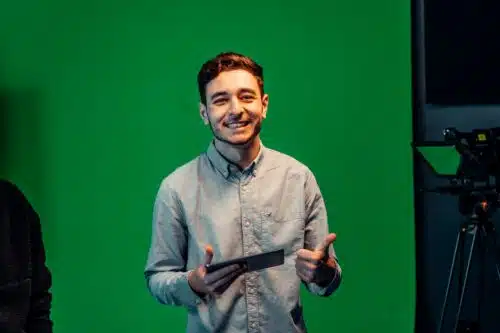A survey on AI video production can never be more than a snapshot because the industry moves fast and technology changes quickly. We’ve seen that in just the month between when we sent out this survey in January 2024 and now publishing the results. In that time, Open AI has released a major new generative video system to red teamers (Sora) and the Justice Department named its first official responsible for monitoring and advising on artificial intelligence.
Even so, we think this snapshot is a valuable look at the attitudes and practices surrounding AI in video. We asked professionals in the marketing and video production field to weigh in on how they were using AI and what they thought might happen next. Here are the results.
Cautious Optimism For AI Video Production
Overall the attitude toward AI in general seems to be optimistic. More than 71% of respondents said they were excited about what AI may bring. That still left almost 18% saying they were apprehensive.
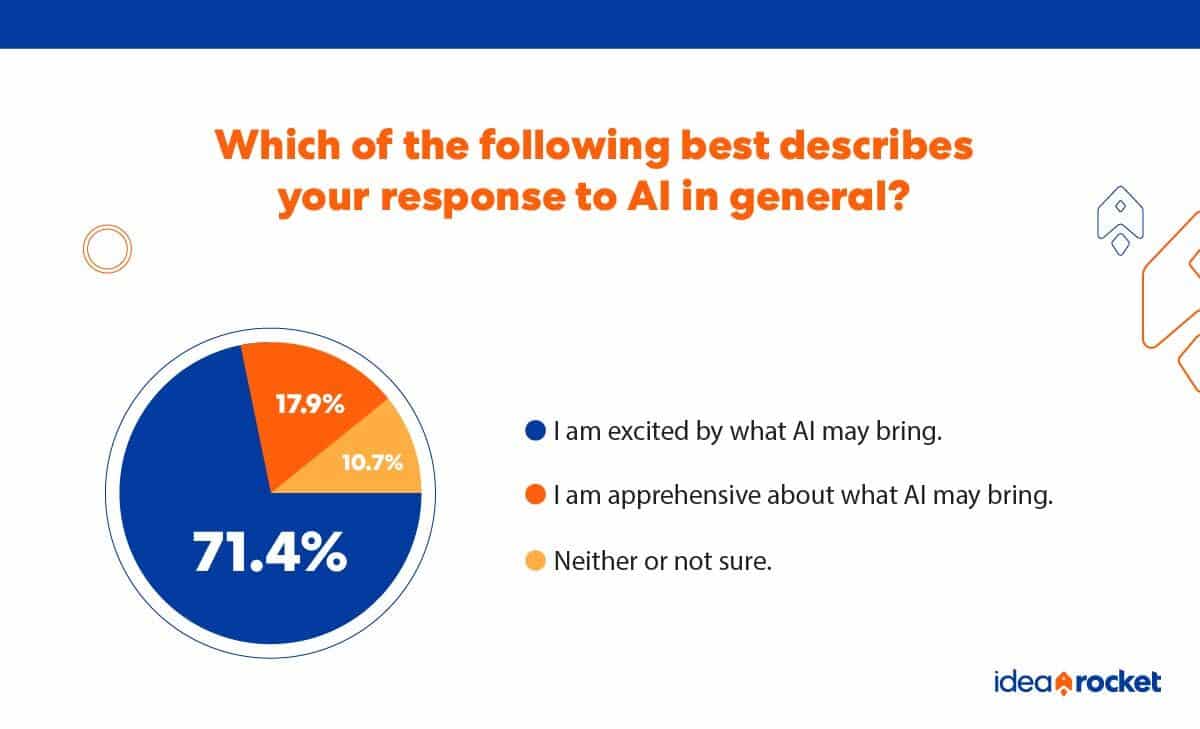
Interestingly, even those who are not excited about AI say they are likely to use it more in the coming year. About 81% of respondents said they will use AI tools more and 7% said their use would remain the same. No one expected to decrease their use of AI video tools.
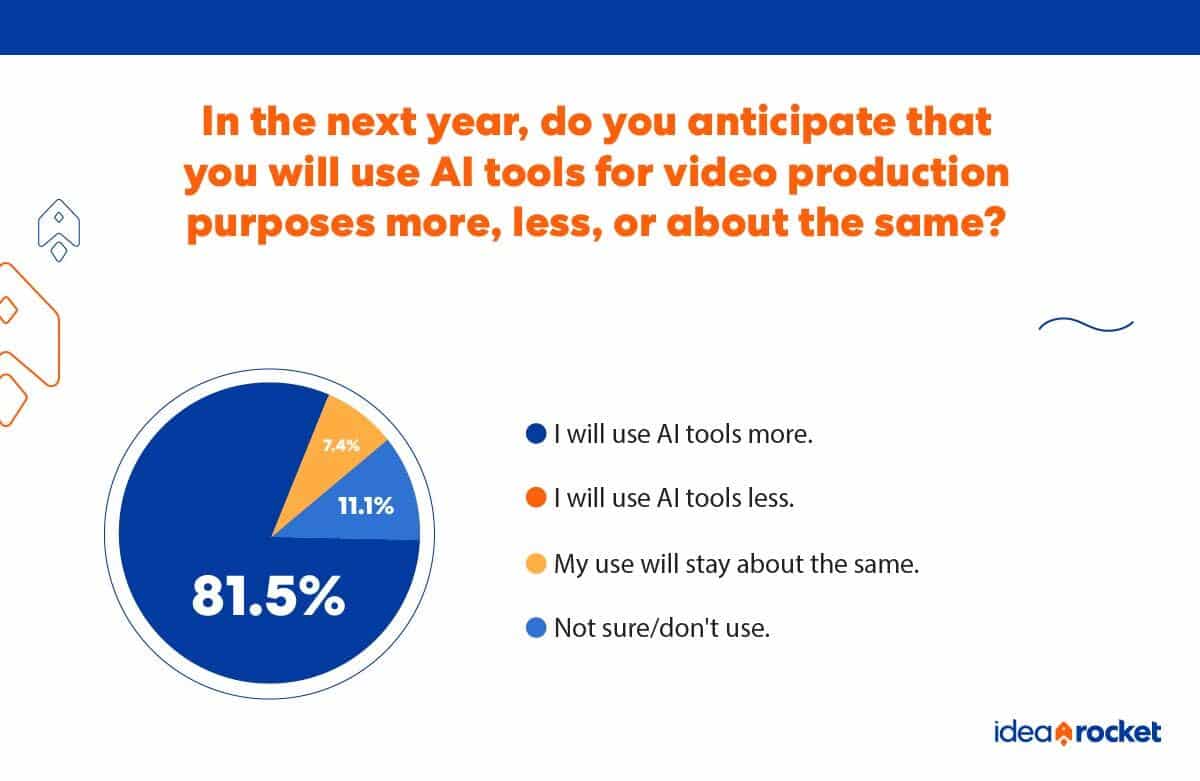
How Video Creators are Using AI Video Production Tools
Only 14% of respondents said they had never used any AI tools for any part of the video production process. This could indicate that those who are most resistant to AI in video production were unwilling to fill out a survey on the topic, or, it might mean that many video creators are at least experimenting with AI tools.
Nearly 40% of respondents said they use AI tools for editing, still image generation, and video generation.
Interestingly, many respondents said they are using AI only in specific parts of the video production process. Just under 58% said they used ChatGPT or some other Large Language Model to write or conceptualize video content.
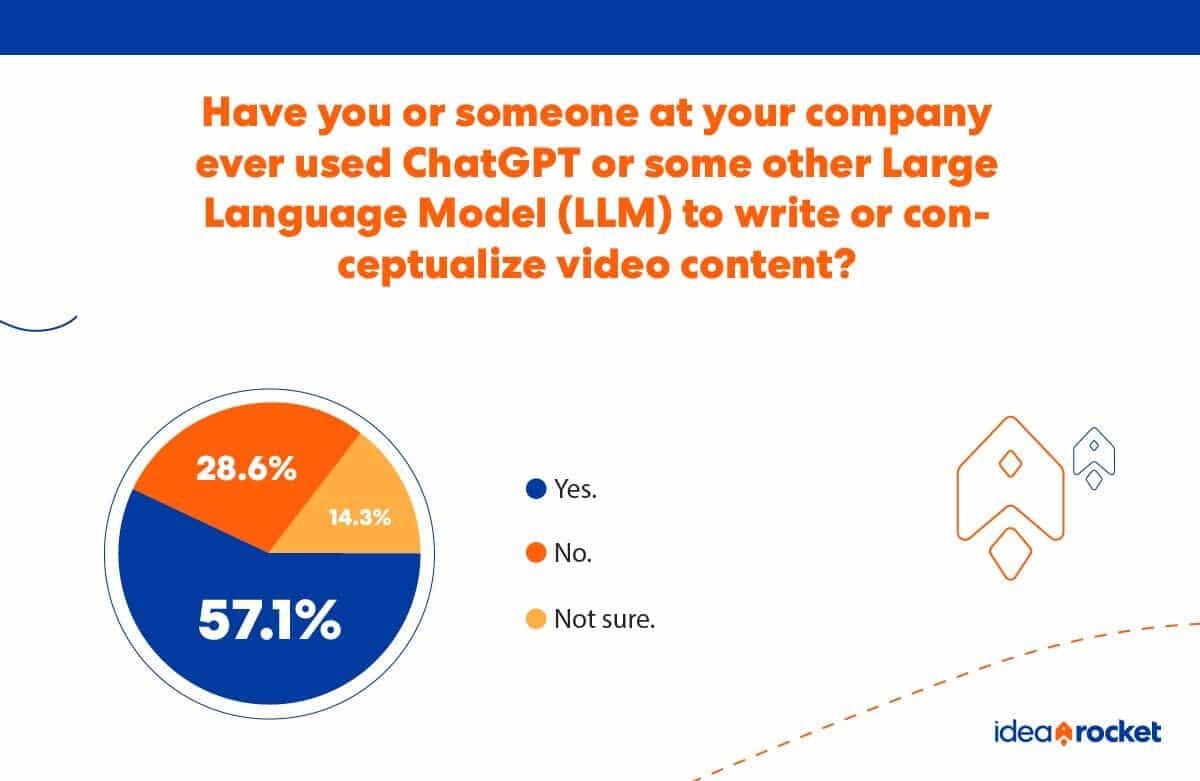
The most often used AI tools for video production purposes were still-image generation services. Of the services named, Dall-E and Midjourney tied as the most popular, followed by Firefly (Photoshop).
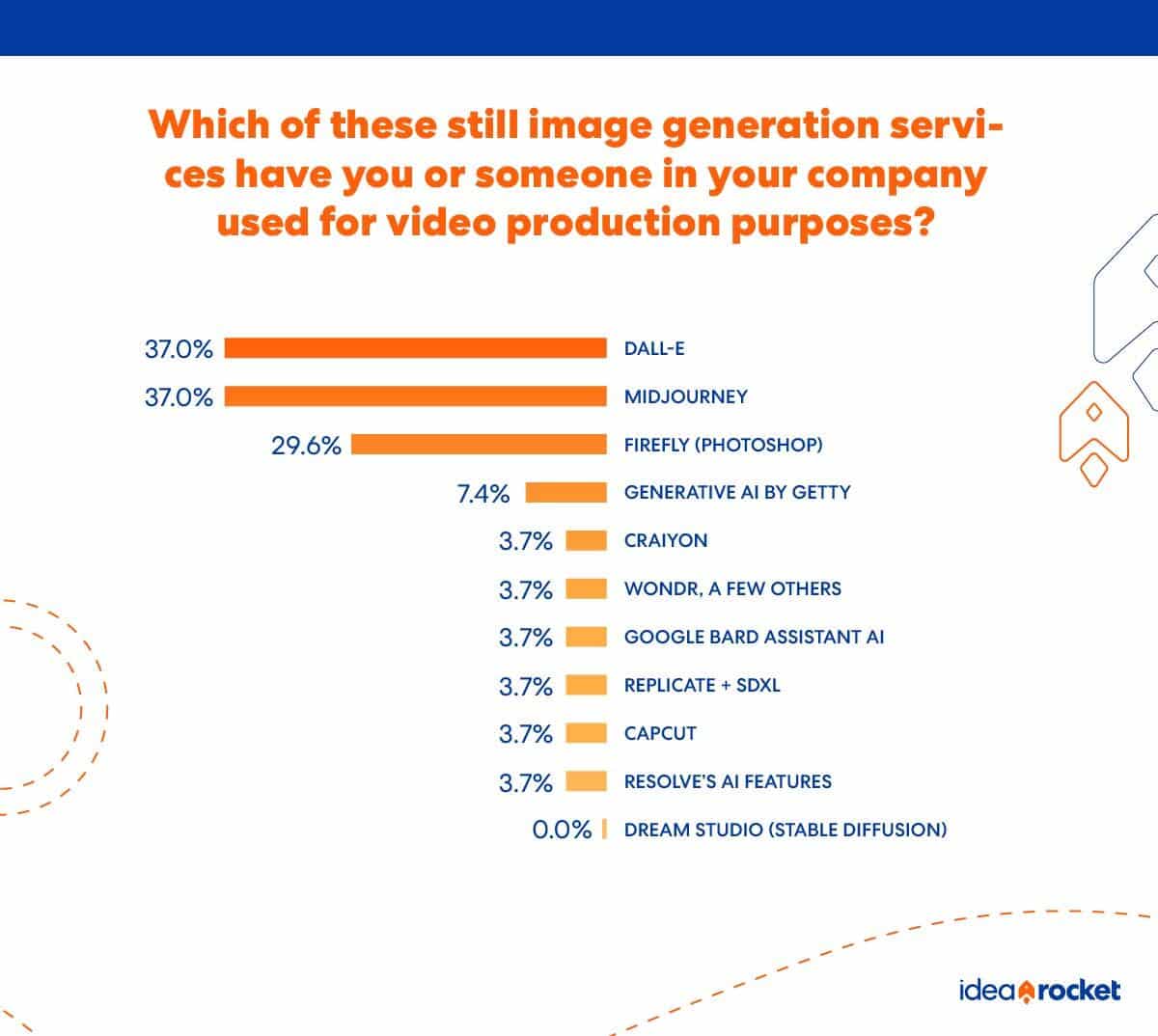
Respondents were least likely to say they used a video generation service. Among those who did use AI for video generation, the most popular tools were RunwayML and Filmora. Keep in mind that this is a pre-Sora poll. It seems likely that this tool (or its heirs) will impact the industry significantly.
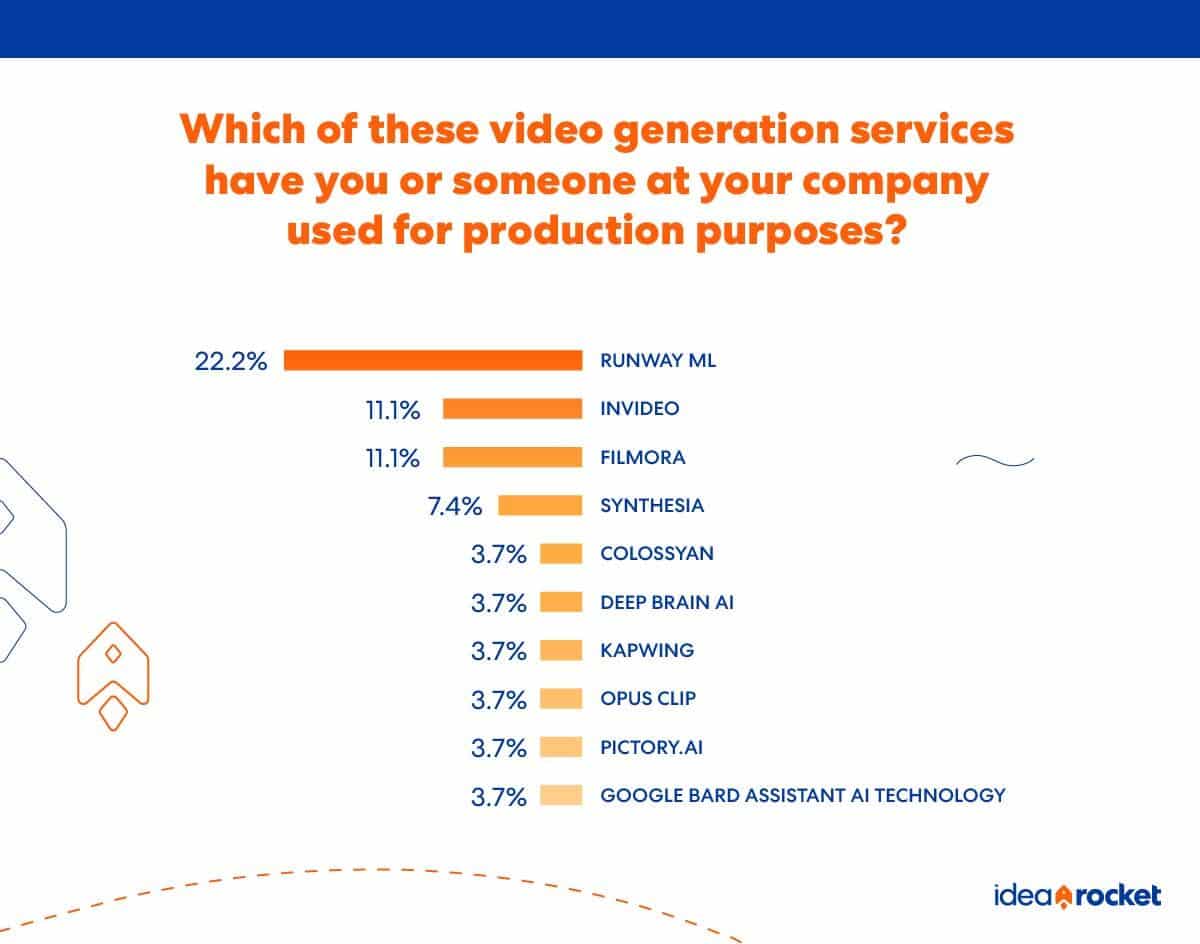
The most commonly used AI-assisted video editing functions were AI-assisted sound optimization followed by editing the video via edits to transcripts. AI-assisted picture upscaling and Auto-reframe tied for third.
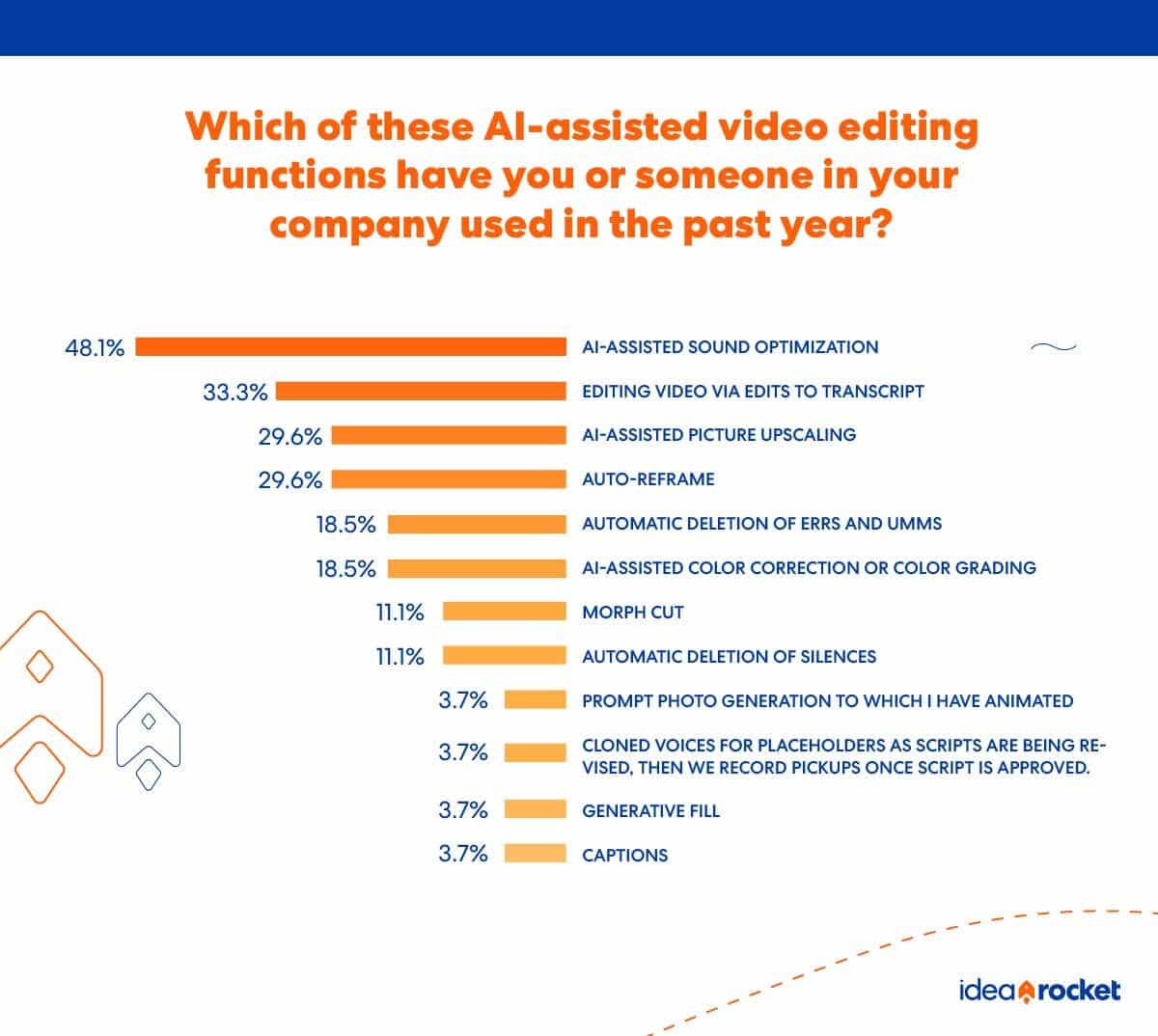
Concerns About the Use of AI In Video
While worries about how AI will affect employment swirl across social media, respondents in our survey seemed less concerned. More than 57% said they did not expect the use of AI in video production to impact the employee count at their company. However, a quarter of respondents did say their employee count was likely to decrease as a result of AI.
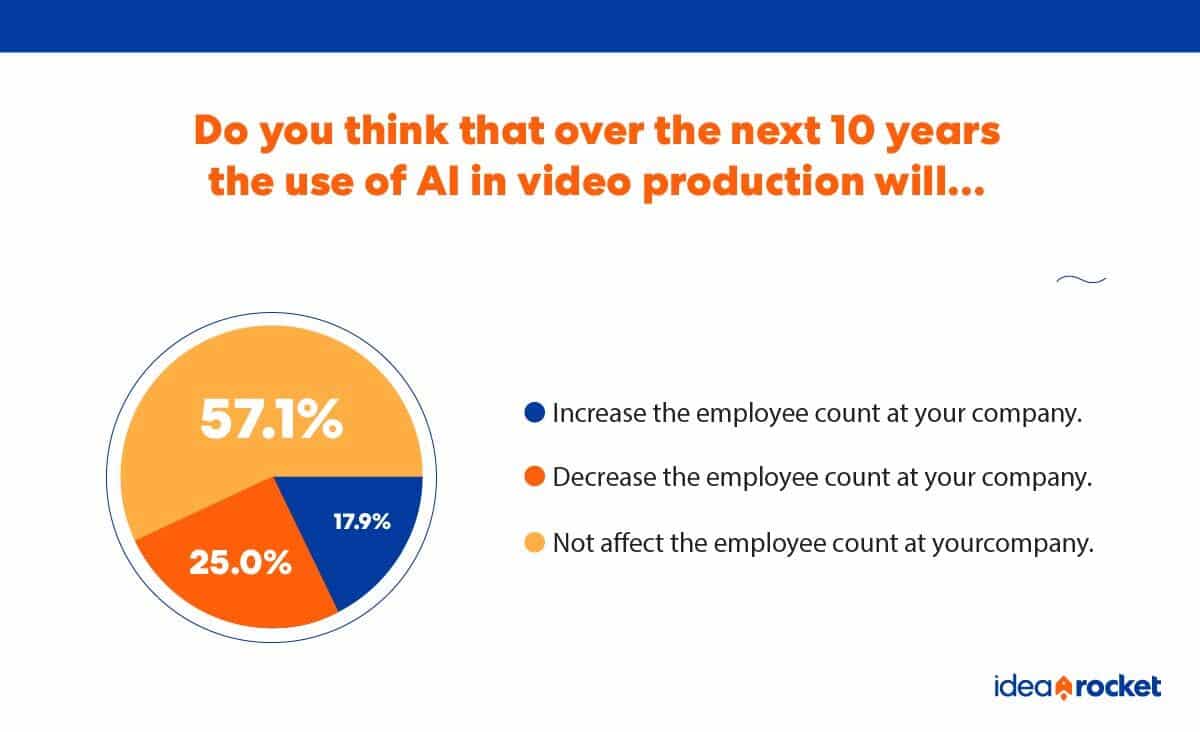
The most common concern among respondents was legal and copyright issues. Steve Szymke, Owner of StS Productions wrote: “I don’t want to be sued or issued a take-down because an AI used an unauthorized repository (Getty Images?) for their learning.”
Some worried that their video production company would lose business as customers defaulted to these cheaper options. As one anonymous respondent put it: “People with no talent will start producing videos that aren’t as good as those produced by experts, but can fool consumers that they are quality videos for low price.”
Many made the connection that a glut of do-it-yourself options could drive the cost of services down, making it more difficult for creators to provide quality video products. The result, they said, would be an overall loss of voice and artistry in video production.
“Everything a particular tool does starts to look the same, giving predictable and boring results. I also worry the showiness will overpower.”
John Schnall, President of Quality Schnallity.
Beyond these business and marketing related concerns, some respondents questioned the larger role of AI in society. They pointed out that AI video could be used for political disinformation. Andy Hall, Video Producer at Sound Motive, mentioned that language AI in particular is known to hallucinate, “resulting in information that sounds credible, but is totally false.”
Ways to Stay Ahead of AI Trends
Whether they love AI or hate it, most video creators recognize that it is impacting the industry in all kinds of ways. When asked how they stayed ahead of AI trends, respondents mostly fell into two camps: those who were trying to learn all the could about AI and those who were actively rejecting it.
“This is a false economy, in my opinion. There are so many AI-related apps and ideas coming out, but very few of them are actually production-ready. ‘staying ahead’ is researching what is out there, testing, and then moving on quickly when it’s not right,” wrote Leigh Miller, Creative Producer, Director
Those who wanted to learn more about AI in video production said that they were:
- Experimenting and testing multiple software
- Programing AI tools for daily use
- Constantly researching
- Joining AI networking groups
- Attending webinars
- Reading
- Trying demos
- Following influencers
The Future of AI Video Creation
Our own Creative Director, William Gadea, says he believes sound will be the first place where AI will heave an enormous impact. ”We will be able to go straight from fine cut to mix, with AI doing most of the effects work and sound clean-up.”
Other respondents named auto-correction, assembly of footage, the ability to scrape b-roll, and 2D animation produced by loading still images and text instructions. Some thought the future might include metadata, watermarking or tracking tools to mitigate licensing issues.
A few had more dire predictions, one anonymous responder thought the future would include “Companies like Pictory taking over what we do.”
Despite the divided opinions, there is one thing that we can say for sure about the future of AI for video creation: it’s going to change. The announcement of Sora is just the latest in a long chain of new technologies and advances in the industry.
At IdeaRocket, we think AI + humans will always trump just AI. Our humans make videos for Healthcare, HR, Animated Commercials, Explainer Videos and more. We’re determined to help you stay ahead of trends so you don’t get left behind. Join our mailing list and stay connected.



